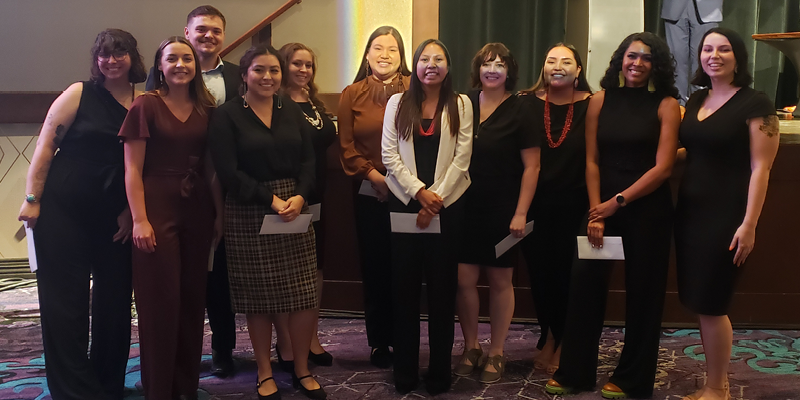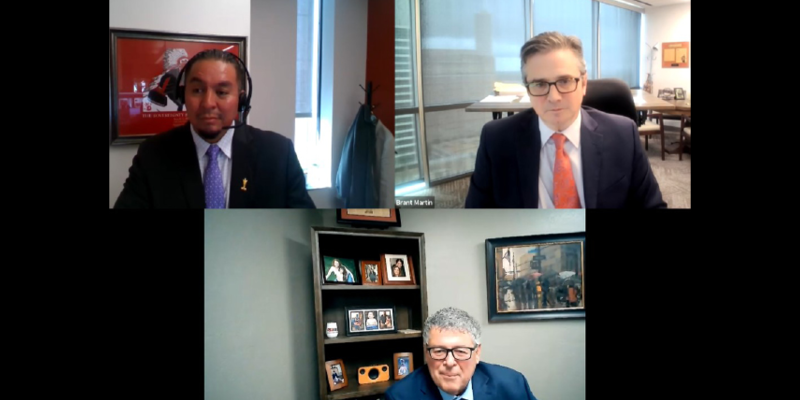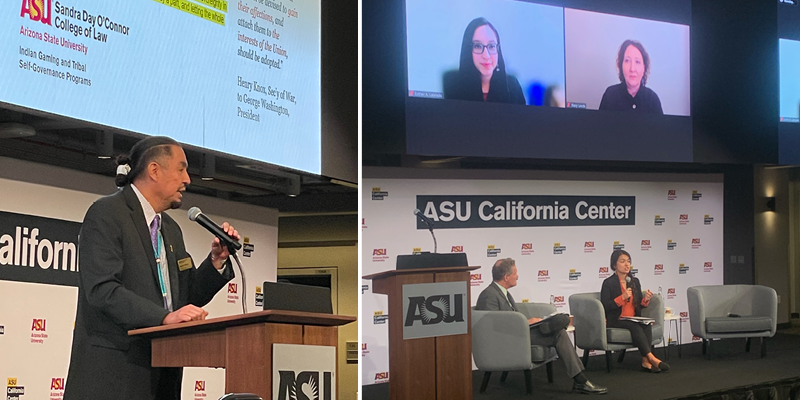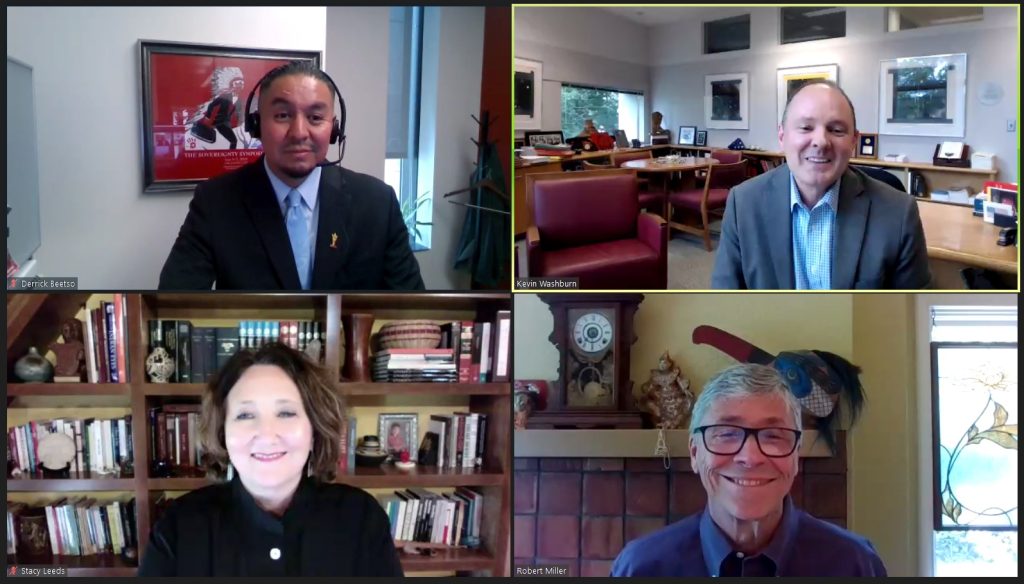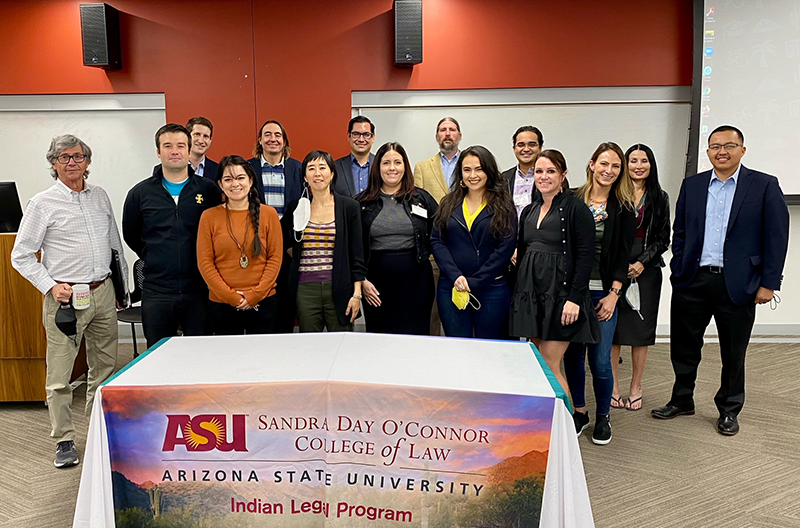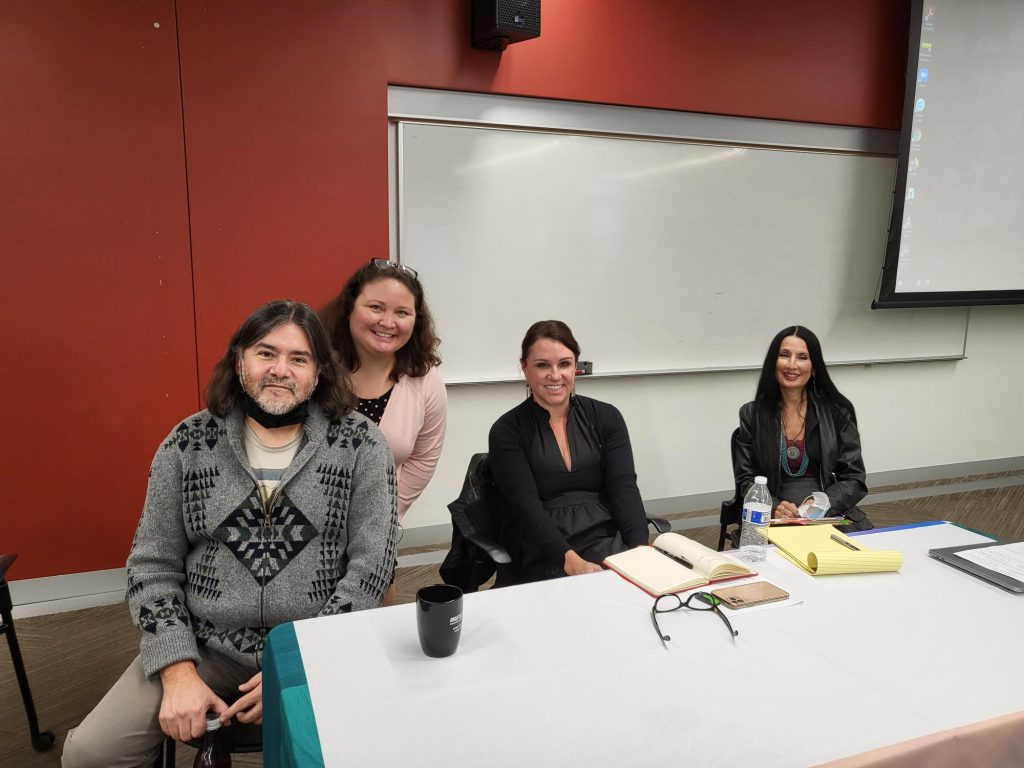Navajo Nation Presidential Debate led by Navajo students at ASU Law
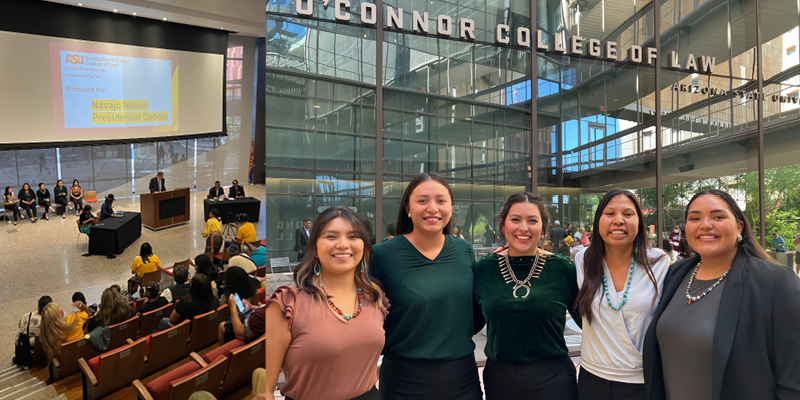
On Oct. 22, the W. P. Carey Armstrong Great Hall was filled with tribal citizens eager to hear from the two final candidates running for President of the Navajo Nation: current President Jonathan Nez and Dr. Buu Nygren. Director Derrick Beetso (’10) moderated the proceedings while Navajo students and staff announced the questions submitted by the public.
Outstanding work by our ILP students and staff: Program Coordinator Theresa Beaulieu, Beetso, Shandiin Herrera (1L), ILC Law Fellow Cierra Moore (’22), Natalia Sells (2L), Autumn Shone (3L), Chelsi Tsosie (1L) and Senior Program Coordinator Danielle Williams.
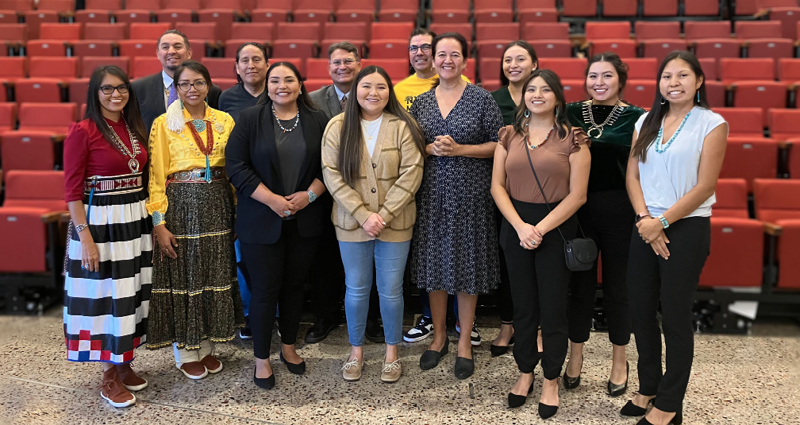
We understand the importance of tribal elections and hosting this event gave Arizona’s urban Navajo voters an opportunity to learn about the candidates and their platforms. The ILP has a special scholarship agreement with the Navajo Nation, which offers full tuition scholarship to Navajo students. Currently we have six Navajo students enrolled at ASU Law. If you know of any prospective Navajo student interested in this awesome scholarship opportunity, reach out to us at ilp@asu.edu.

